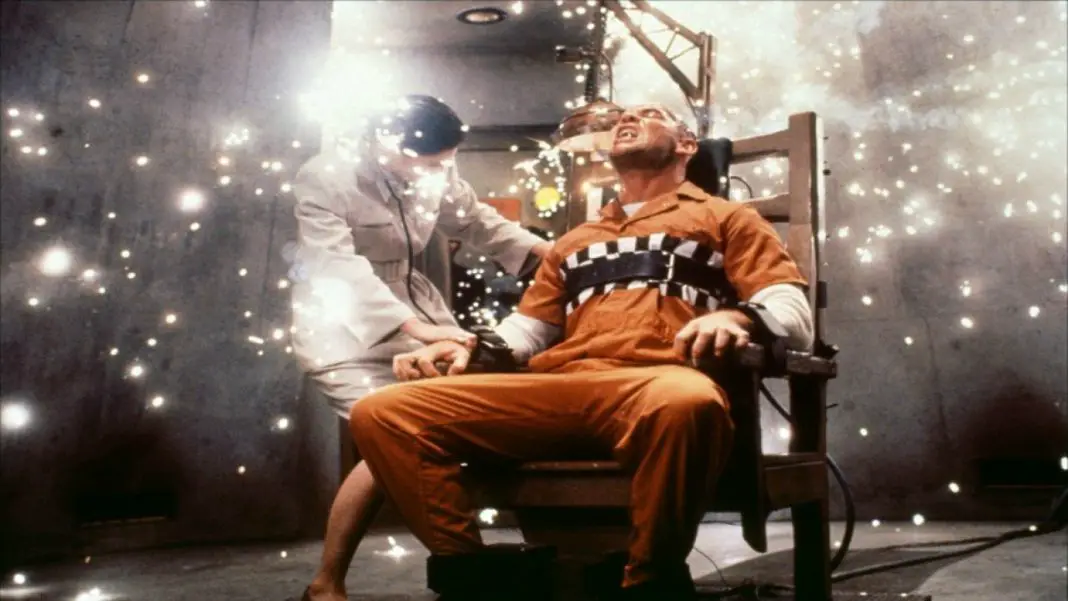It’s a legitimate question. When it comes to the modern masters of horror, we all know their names: John Carpenter, Wes Craven, Clive Barker, George Romero, Joe Dante, Stuart Gordon, Dario Argento, Tobe Hooper, etc… These guys were at one time the genre’s biggest heavy hitters. For a lot of fans, these are the people who defined the modern face of the genre. They gave horror some of its most powerful films and most popular franchises.
So where did they go? The last time these people were all creating content at the same time was during the run of the Showtime series Masters of Horror, which ran for two seasons and premiered nine years ago. Since then they’ve done a few individual projects, to be sure. John Carpenter directed The Ward, Wes Craven returned with My Soul to Take, Romero directed Diary of the Dead and Survival of the Dead. And Dario Argento has persisted in driving his career further and further into the ground. None of these movies have the power that all of these directors had at the height of their career. The Ward isn’t a terrible feature on its own, but when compared with Halloween and The Thing, it obviously doesn’t come close.
Also See: Six Directors Who Should Have Been Recognized as Masters of Horror
The most obvious reason is age. These directors are a lot older now and there are a lot of reasons why directing is always touted as a young man’s game. It takes a lot out of you. Fans love these people, they idolize them. But the truth is that the industry has never cared about them. The only name in horror that has actually sold tickets on a massive level was Stephen King. John Carpenter and George Romero have never been box office draws on the level of Steven Spielberg or George Lucas. That may not seem like that big of a deal, but that means that each of these directors had to fight for every single one of their movies. And often it was a losing battle. Some of these films didn’t find an audience until years after they were released.That’s very tough on a director, they still produced a lot of terrific work, each and every one of them. But everything draws to a close eventually. It would have been great to see each one of them go out with a bang. But it doesn’t always work like that. You can’t plan for these things, they just sneak up on you. Nobody really knows when their time in the spotlight is over and even now we don’t want to believe that it is. I still want to believe they each have one more great movie in them.
 What’s more interesting than simply wondering what happened to the masters of horror in general is wondering what happened to the idea of the masters of horror. Most of the directors we’ve looked at started their careers forty years ago. Some, even longer than that. Why don’t we have any new ones? Why aren’t new directors being embraced in the same way that fans became devoted to Carpenter, Craven and Romero?
What’s more interesting than simply wondering what happened to the masters of horror in general is wondering what happened to the idea of the masters of horror. Most of the directors we’ve looked at started their careers forty years ago. Some, even longer than that. Why don’t we have any new ones? Why aren’t new directors being embraced in the same way that fans became devoted to Carpenter, Craven and Romero?
That’s a lot harder to answer. You could say that it has to do with most horror being produced on the independent market, but horror has always dominated the independent market. It’s harder for any one name to really gel with the genre’s fan base overall. Adam Wingard, Ti West, Alexandre Aja, Adam Green, Joe Lynch and their contemporaries have their fans among the hardcore horror community but are not as known by the general populace. The only two directors who come close to that level are Rob Zombie and Eli Roth. And even then, Zombie had a successful music career well before he ever tried his hand at directing a film.
Even though Halloween and A Nightmare on Elm Street were independent features with a similar budget to films like Inside, House of the Devil and Hatchet, they were still theatrical successes. They were made in a time when theatrical distribution was the only option and this led to both of them ultimately being successful at the box office. There’s not as much room for that in theaters anymore. Now we have the ongoing franchises and the remakes—and even those are beginning to take the VOD & Blu-Ray route—with little leeway for anything else.

I’m not saying the rise of video popularity and DVD hurt things; in fact, they helped the genre in a lot of very important ways. But these movements probably did have something to do with why we don’t have new masters of horror, despite all the talented filmmakers out there. Everything is at our fingertips all the time. The whole history of horror and the entire current marketplace is a click away. How can we begin narrowing down the select few best of the best in the genre today when there are so many options from all over the world?
The kings and queens of horror will always be remembered as such. New directors and writers will emerge and they will have their fans. Hopefully they’ll all be remembered if they do something truly worth remembering, but the idolization of the people behind the genre has come to a close. The masters of horror, at best, have become a collective encyclopedia on how to make great horror. They may have moved aside, but they inspired a whole new generation of filmmakers and will inspire generations to come. That’s probably legacy enough.








